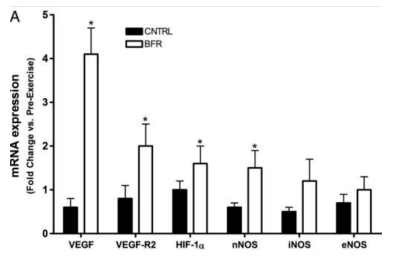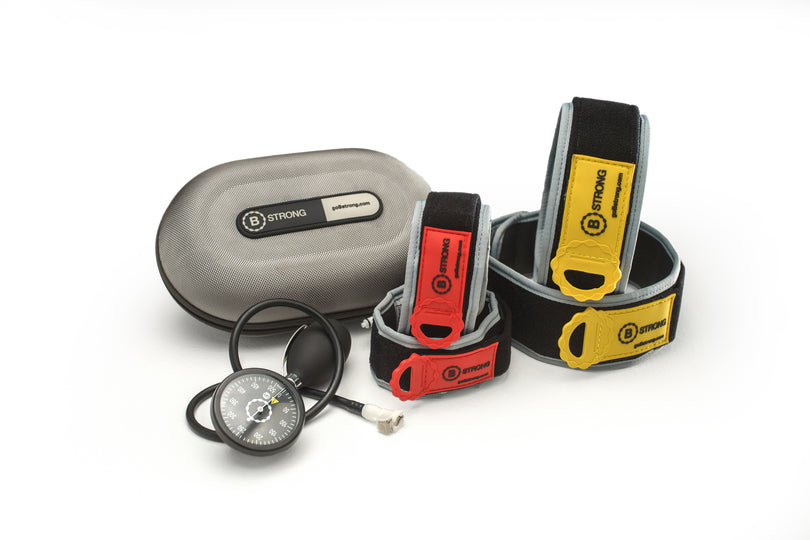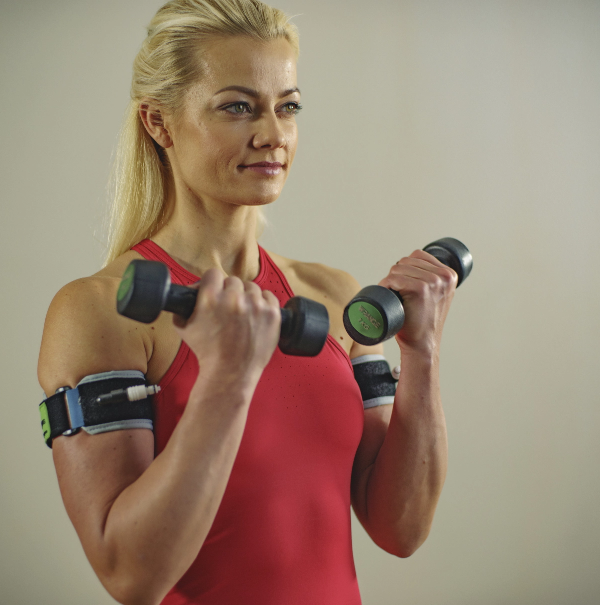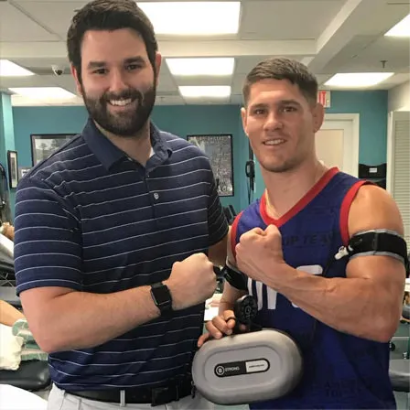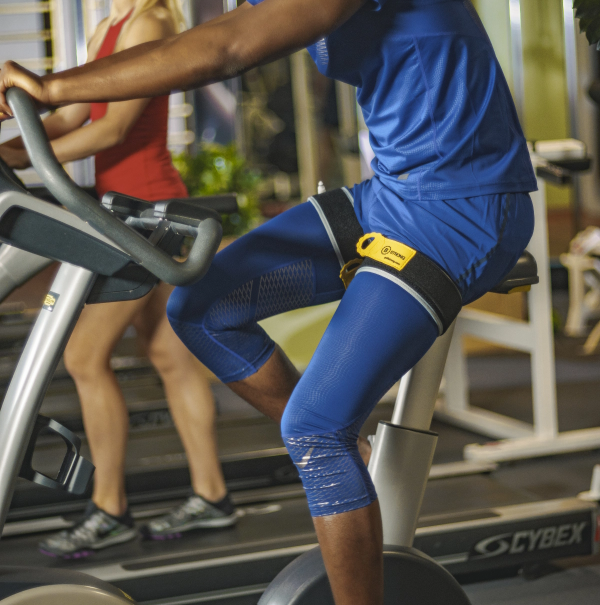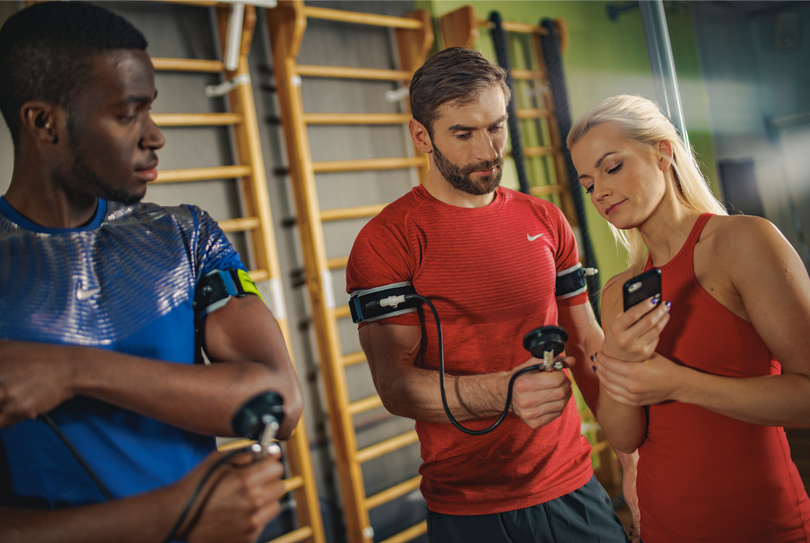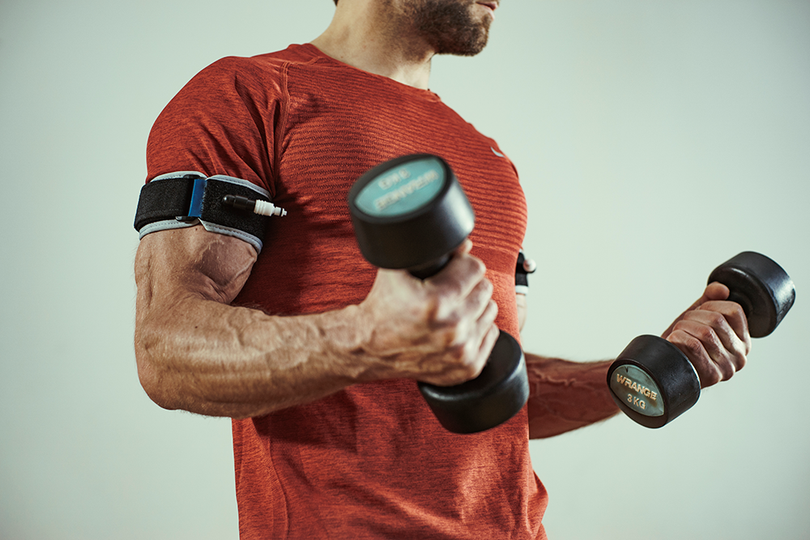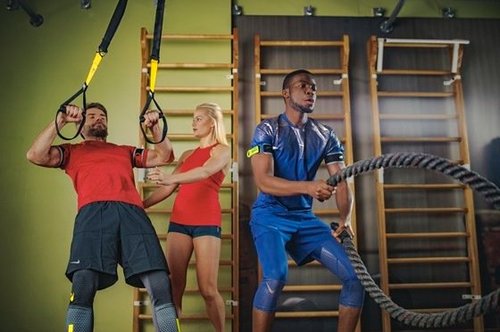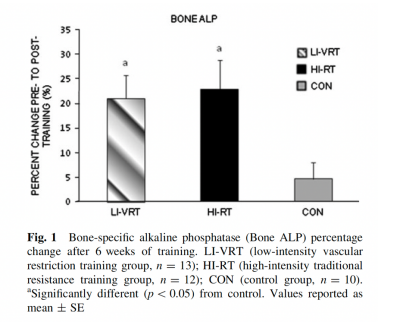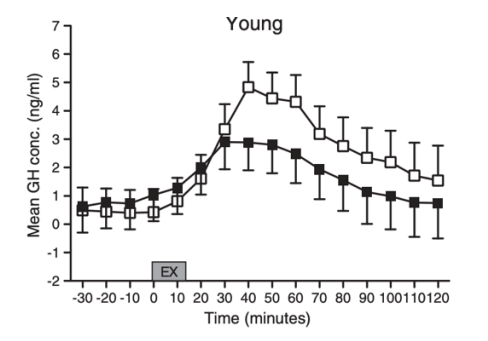BFR training builds new and better blood vessels.
Larkin et al. 2012
• Angiogenesis is the physiological process by which new blood vessels are formed and is a critical factor for exercising muscle, as it helps deliver oxygen and nutrients to the muscle fibers and supports the clearance of metabolic byproducts from the muscle. Increases in angiogenesis are demonstrated through the expression of molecules such as vascular endothelial growth factor (VEGF).
• 6 young adults performed 120 unilateral knee extensions at 40% of 1RM with and without BFR.
• Muscle oxygen content was measured in the thigh muscle using near-infrared spectroscopy.
• Serum and muscle expression of vascular endothelial growth factor (VEGF) were also measured.
• The study revealed that BFR desaturated the muscle oxygen content more than the non-BFR group. BFR also increased mRNA transcription of VEGF more than the non-BFR group.
• Take-away: BFR increases postexercise expression of mRNA molecules related to muscle angiogenesis, most likely due to BFR-induced muscle hypoxia (lowoxygen levels).
• Thus, by harnessing the power of BFR, individuals can induce angiogenic adaptations that are beneficial for muscle strength and size.
